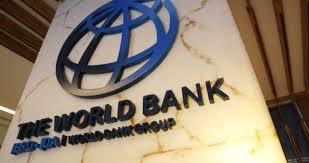….says globally 2.4bn people still cook with carbon-emission fuels
The World Bank has in its just published ‘Tracking SDG 7: The Energy Progress Report, 2022’ edition indicated that the impact of the COVID-19 pandemic remained one of the key factors slowing progress in global collective initiatives targeted at achieving universal energy access.
The Bretton Woods institution in a statement hoisted on its website reported that the impacts of the pandemic affected the pace of progress toward the Sustainable Development Goal (SDG 7).
The SGD 7 aims at ensuring access to affordable, reliable, sustainable and modern energy by 2030.
The report, published in collaboration with the five SDG 7 custodian agencies, was aimed at providing the international community with a global dashboard to register progress on energy access, energy efficiency, renewable energy and international cooperation to advance SDG 7.
The report further disclosed that globally 733 million people still have no access to electricity and 2.4 billion people still cook with fuels that harm their health and the environment.
According to the report, advances have been impeded, particularly in the most vulnerable countries and those already lagging in energy access and nearly 90 million people in Asia and Africa, who had previously gained access to electricity, can no longer afford to pay for their basic energy needs.
Noting that the impacts of the COVID-19 crisis on energy have been compounded in the last few months by the Russian invasion of Ukraine, the report indicates that this has led to uncertainty in global oil and gas markets and had sent energy prices soaring.
It stated: “Africa remains the least electrified in the world with 568 million people without electricity access.
“Sub-Saharan Africa’s share of the global population without electricity jumped to 77 per cent in 2020, from 71 per cent in 2018, whereas most other regions saw declines in their share of the access deficits.
“While 70 million people globally gained access to clean cooking fuels and technologies, this progress was not enough to keep pace with population growth, particularly in Sub-Saharan Africa”, the report added.
The report noted that in spite of continued disruptions in economic activity and supply chains, renewable energy was the only energy source to grow through the pandemic even as the positive global and regional trends in renewable energy has left behind many countries most in need of electricity.
The World Bank’s report findings showed that this worrisome situation hadbeen aggravated by a decrease in international financial flows for the second year in a row, falling by 10.9 billion dollars in 2019.
While recalling that in September 2021 the United Nations High-Level Dialogue on Energy stakeholders met to accelerate action to achieve a sustainable energy future that leaves no one behind, the statement indicated that “in this context, the SDG 7 custodian agencies, as they launch this report, are urging the international community and policymakers to safeguard gains toward SDG 7.”
The statement quoted the World Bank’s Infrastructure Vice President, Riccardo Puliti, as appealing to “governments and the global community to scale up efforts to integrate universal energy access into national energy transition plans.”




